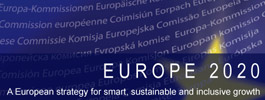by Xavier Prats Monné, Director-General of DG Health and Food Safety, European Commission

Advancements in science are often difficult to achieve, but once obtained they are easily taken for granted. Who remembers today that smallpox killed between 300 million and 500 million people - yes, up to half a billion human beings - in the 20th century alone? In 1967, for example, the year the WHO announced a global smallpox eradication programme, smallpox struck 10 to 15 million people a year, killed two million, disfigured millions and left some 100,000 people blind. Unfortunately some people seem to have forgotten all of this. Today it is unheard of, in the western world, for children to die of diseases such as polio, and small pox has become an anecdote of history. This state of affairs, however, did not magically happen overnight and is only possible because of what experts consider to be one of the greatest public health achievements of the 20th century - immunisation. This success hasn't stopped people from growing sceptical about the need to vaccinate. Scaremongering, media hyperbole and sensationalism, coupled with gross exaggeration of the risks of vaccines have made a section of society forgetful of the importance of vaccination for all of us to stay healthy.
Although vaccination is the most powerful preventive public health tool we have to protect people against a large number of communicable diseases, vaccination coverage rates in the EU are low and are even decreasing in most Member States. This is the result of greatly over-estimating the risks associated with vaccination and under-estimating the risk of communicable diseases.
But the decrease in demand for vaccinations hasn't led to a surplus. In fact, it has led to a vaccine shortage in many Member States. There are fewer producers based in Europe now, and they have to serve an increasingly globalised market, leading to a shortage that could become critical and creating a health security challenge.
In addition, many national immunisation programmes lack solid financial planning and suffer from insufficient investments in infrastructure and surveillance and costly, inefficient and ineffective vaccine procurements.
While Member States are responsible for the organisation and implementation of their own vaccination programmes, the EU can assist in the case of cross border health threats, which include communicable diseases. A primary tool for providing this assistance is the Joint Procurement Agreement that makes it possible for the EU Member States who have signed the agreement to buy medicines as a group, negotiating best prices and quickest and greatest availability.
More can be done, and the Commission is currently exploring ways to bring Member State's attention to the real need to promote vaccination and to end the shortages. The time is not when there is a resurgence of a latent disease or an epidemic. The time to act is now. Let us once again remind everyone that the current standard of health that we have today has only been made possible by the vaccination programmes we have done over the years, that the risks of natural infection outweigh the risks of vaccination and that the riskier choice is always choosing not to vaccinate.







